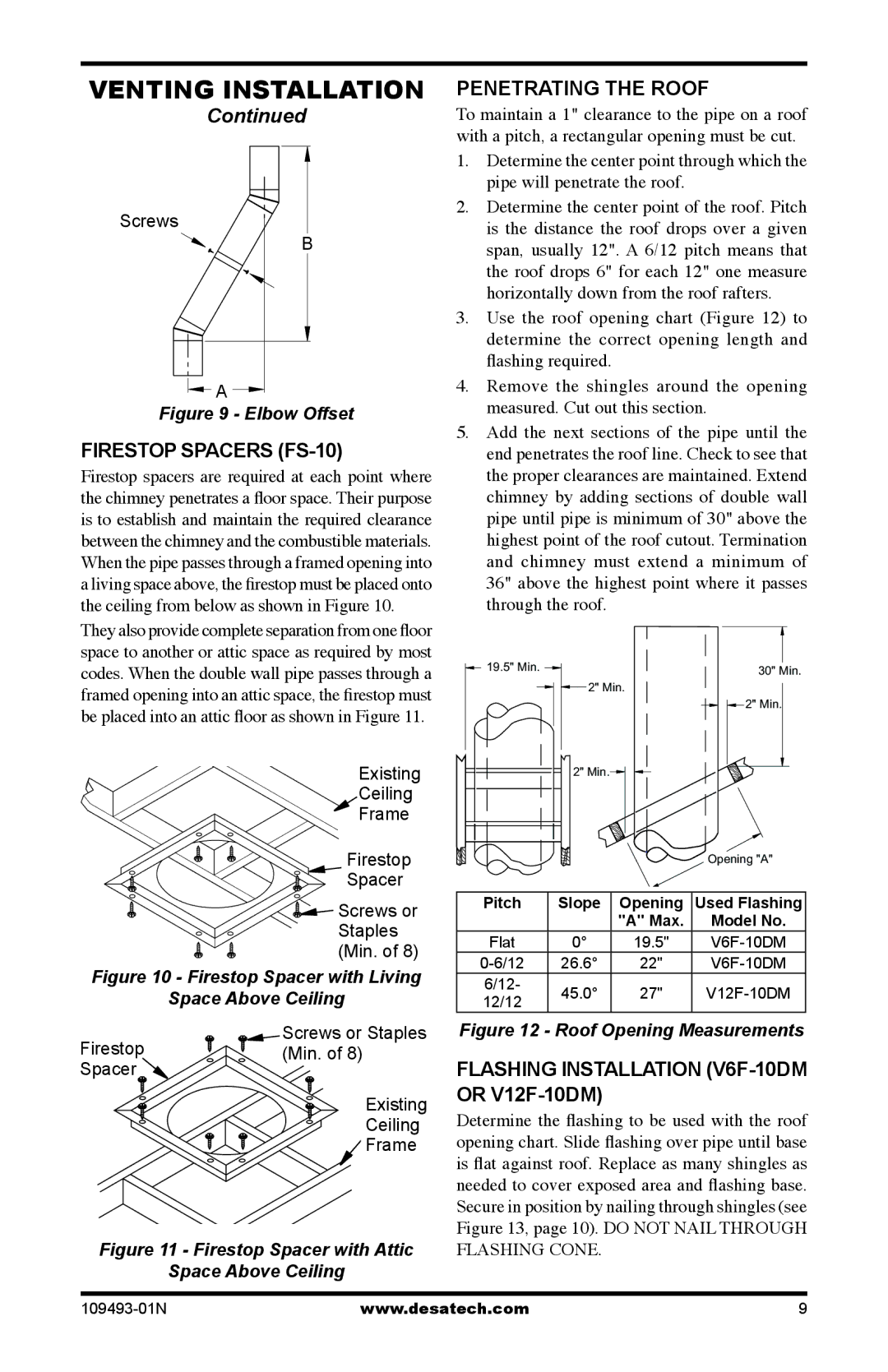(V)G42H/50H, (V)G42/50, (V)G42R/50R, (V)G42HR/50HR specifications
Desa (V)G42/50, (V)G42HR/50HR, (V)G42R/50R, and (V)G42H/50H represent a series of advanced heating solutions designed to meet varied thermal requirements while ensuring energy efficiency and user comfort. Each model in this range boasts its unique features that cater to specific needs, providing versatility for residential and commercial applications.The (V)G42/50 series serves as a staple in modern heating technology. With a focus on efficiency and environmental sustainability, these models utilize high-efficiency burners and sophisticated heat exchangers that maximize heat output while minimizing fuel consumption. Their compact design allows for easy installation in limited spaces, making them an ideal choice for both contemporary and traditional settings. Comfort is enhanced through user-friendly digital thermostats that allow for precise temperature control.
Moving to the (V)G42HR/50HR, these units incorporate high-efficiency ratings and variable speed fans to adjust airflow based on heating demand. This adaptability not only increases energy savings but also improves indoor air quality by reducing the accumulation of airborne particulates. The use of high-grade insulation materials ensures minimal heat loss, providing a more consistent indoor temperature.
The (V)G42R/50R models are designed specifically for radiant heating applications. Featuring advanced radiant heat technology, these units distribute warmth evenly across the space, creating a comfortable environment without the drafts often associated with conventional heating systems. The integration of smart home technology allows for remote operation and monitoring, enhancing user convenience.
Lastly, the (V)G42H/50H models are tailored for high-capacity heating needs. These systems are built for larger spaces, offering robust heating capabilities while maintaining energy efficiency. Their construction utilizes durable materials that extend product longevity and reduce the need for frequent maintenance.
In summary, the Desa (V)G series offers a comprehensive lineup of heating solutions with advanced technology and features designed for efficiency, comfort, and adaptability. From standard models to high-capacity and radiant heating systems, each unit addresses unique heating challenges, making them suitable for diverse applications while prioritizing energy conservation and user satisfaction.

